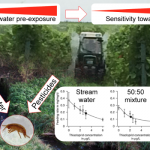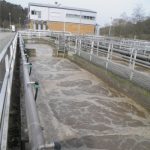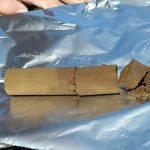We are offering a master thesis investigating ecotoxicological responses of aquatic invertebrates to wastewater treated with different technologies.
Master thesis opportunity in Invertebrate Ecotoxicology



We are offering a master thesis investigating ecotoxicological responses of aquatic invertebrates to wastewater treated with different technologies.
The International Institute for Environmental Studies offers a free e-course entitled “Water Pollution Mitigation and Aquatic Remediation”, running every Wednesday from April 11 to June 20.
University of Cyprus in Nicosia is offering 10 advanced PostDoc fellowships for which researchers can submit their own proposals, for example to the Laboratory of Environmental Engineering.
In this post, we would like to draw your attention to six sessions that we are (co-)organising for the upcoming SETAC Europe 28th Annual Meeting in Rome from 13-17 May 2018.

In this post, Trong Dieu Hien Le talks about their recently published paper “Contribution of waste water treatment plants to pesticide toxicity in agriculture catchments”.

In this post, we talk about our recently published paper “History matters: pre-exposure to wastewater enhances pesticide toxicity in invertebrates”.

In this post, Moritz Link reports about his recently published paper “Comparison of dilution factors for German wastewater treatment plant effluents in receiving streams to the fixed dilution factor from chemical risk assessment”.

In this post, Mirco Bundschuh highlights the recently funded JPI (Joint Programming Initiative) project “Impacts of MicroPlastics in Agrosystems and Stream Environments (IMPASSE)” on which he is working with colleagues across Europe and from Canada.
An 18-month research position on Aquatic Microbial Ecotoxicology is available from 3 April 2017 at the National Research Institute of Science and Technology for Environment and Agriculture (irstea), France.
In this post, we want to draw your attention to two sessions we are organising for the next SETAC Europe Annual Meeting.